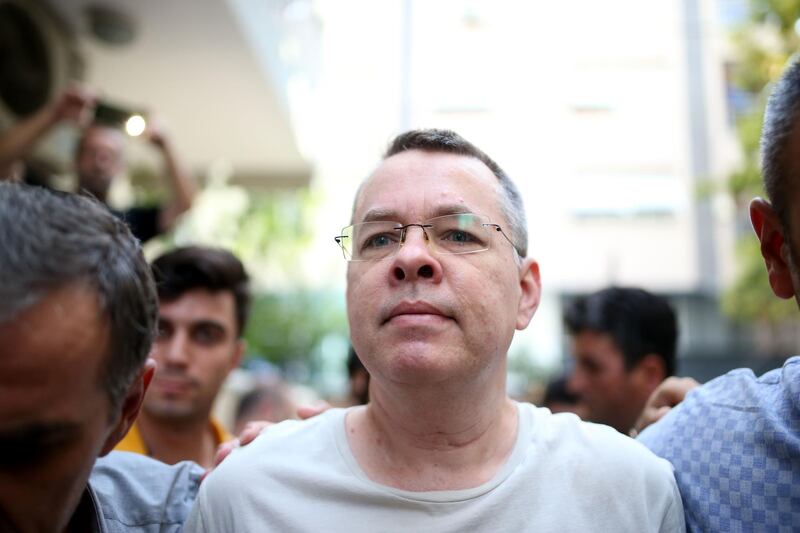It is exceptionally rare for one Nato member to level sanctions at another. But with US President Donald Trump and his Turkish counterpart Recep Tayyip Erdogan in power, precedent counts for little. This week the US sanctioned two Turkish government ministers over the ongoing detention of Andrew Brunson, an American evangelical pastor in the southern city of Izmir. Turkish foreign minister Mevlut Cavusoglu vowed to respond in kind. It underscores months of rising tensions between the US and Turkey, who boast Nato's two largest armies. But those who expect economic coercion to drastically change Mr Erdogan's behaviour cannot be familiar with the way he conducts himself on the national and international stage. Following his re-election in June, Mr Erdogan has unprecedented powers and a deteriorating fallout with the US could see him simply tighten his grip.
After courting the EU for years, Mr Erdogan has realigned his country's interests with Russia and Iran – two countries responsible for much upheaval in the Middle East. He is pushing ahead with a plan to purchase Russia's S-400 air defence system, which is not compatible with Nato defence systems, enraging the US Congress, which has blocked the sale of jets to Turkey and passed a bill instructing international lenders, upon whom Turkey's economy depends, to limit loans and assistance. Clearly, congressional leaders are willing to pursue drastic economic means to reign in Mr Erdogan. And yet the pugnacious president appears to care little for US veneration, as he proved by defying US de-escalation appeals and seizing the northern Syrian city of Afrin earlier this year.
Although domestic support propelled Mr Erdogan to a pivotal election victory on June 24, allowing him to remake the country in his image, his eccentric economic views have spooked international investors. This year the Turkish lira's value has fallen by 20 per cent, while double digit inflation and unemployment rates are alarming. With the announcement of US sanctions this week, the currency slumped to a record low.
But while many hoped market imperatives would restrain Mr Erdogan, Turkey’s economic troubles could instead play into his hands. Since a failed coup in 2016 – sparking a ruthless crackdown – the Turkish president has fostered a bunker mentality, one that presents Turkey as under threat. To account for economic decline, the president points to the anti-Erdogan vitriol of international media.
The row surrounding Brunson's detention could be no different. While the Trump administration has sent a robust message that imprisoning Americans is unacceptable, an emboldened Mr Erdogan will present it as an unprovoked economic attack, thereby exculpating himself from the hardship befalling ordinary Turks. And with dissent largely silenced, America's warnings might fall on deaf ears.





